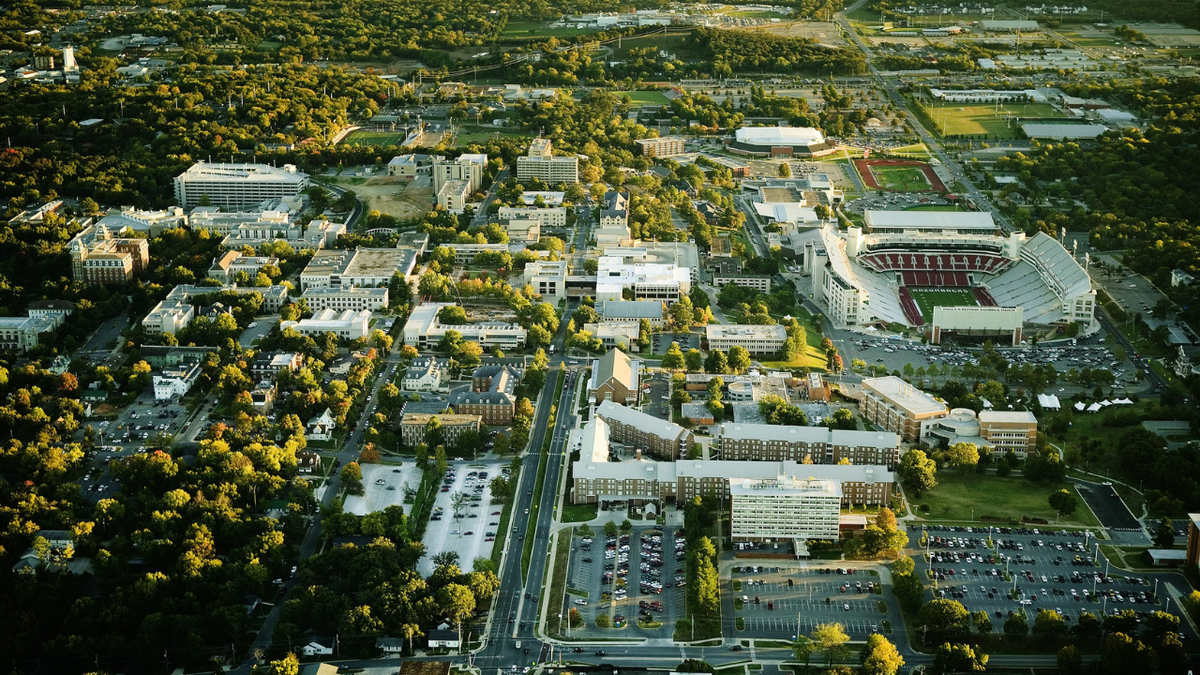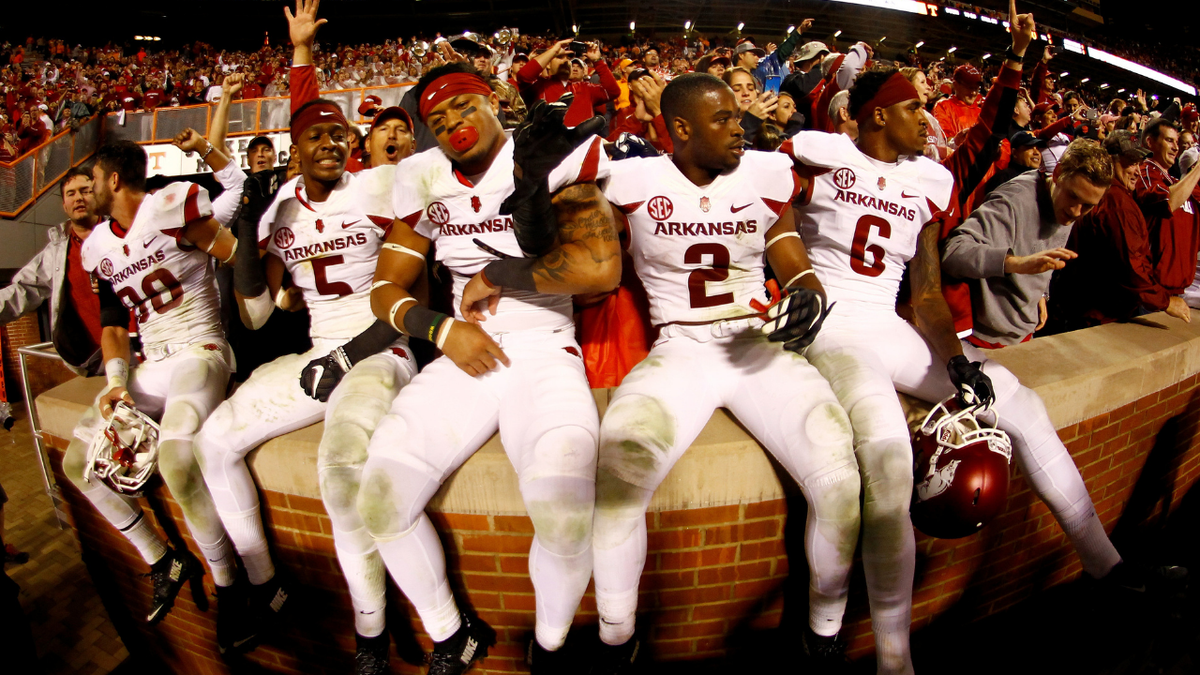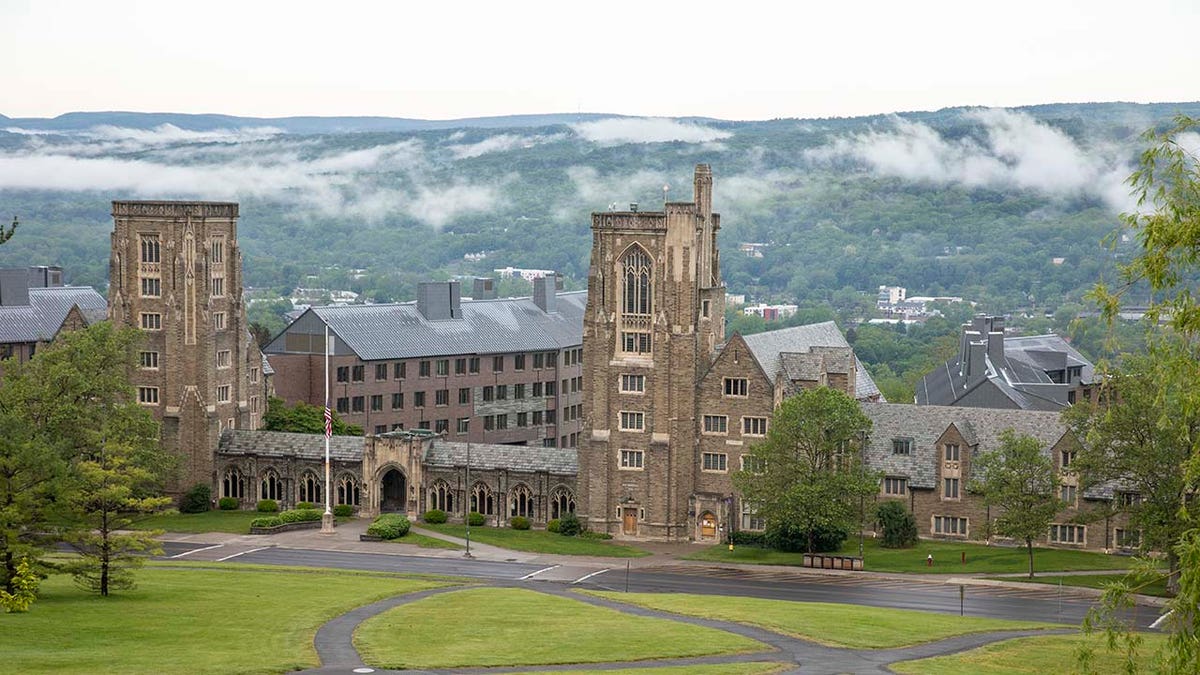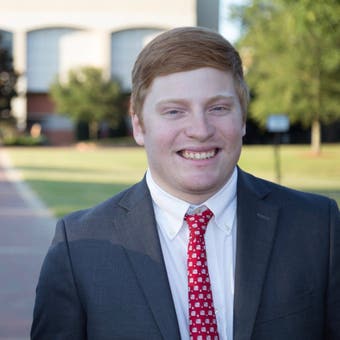Fox News Flash top headlines for December 20
Fox News Flash top headlines are here. Check out what's clicking on Foxnews.com.
The University of Arkansas is offering a backpacking trip for "Black, Indigenous, and People of Color" and other recreational trips based on participants' identity.
According to the University of Arkansas University Recreation Department, the "Black, Indigenous, and People of Color Backpacking" trip will be held on Feb. 25-27 and is designed for BIPOC individuals.
"This trip is designed for enable (sic) Black, Indigenous, Lantinx, Asian, and other people of color who are underrepresented in outdoor recreation to learn and grow in an inclusive and supportive environment. This trip explores a popular backpacking loop in the Buffalo National River Wilderness Area," the description states.
CORNELL’S ‘BIPOC-ONLY’ ROCK-CLIMBING COURSE OPENED TO WHITE STUDENTS AFTER RACISM CLAIMS

An aerial view of the University of Arkansas campus on Oct. 14, 2006, in Fayetteville, Arkansas ((Photo by Wesley Hitt/Getty Images))
The university recreation center is also offering an "LGBTQIA+ Climb Night" for anyone who identifies as a member of the LGBTQIA+ community.
"UREC Outdoors is opening up the climbing wall on a Friday night for anyone who identifies as a member of the LGBTQIA+ Community. Join other climbers of a shared identity! UREC Outdoors will help get you started at the climbing wall," the description states.
Additionally, the university department is also offering "Indigenous Student Buffalo River Day Paddle" that is open to students who "identify as an indigenous student."

A few members of the Arkansas Razorbacks celebrate with the fans after the victory. (Photo by Charles Mitchell/Icon Sportswire/Corbis/Icon Sportswire via Getty Images)
WASHINGTON UNIVERSITY CREATES SEGREGATED HOUSING SPECIFICALLY FOR BLACK STUDENTS
"If you identify as an indigenous student we invite you to join us for a day out on the Buffalo National River. No paddling experience is needed. It's a great opportunity to get outside and paddle with people of a shared identity," the description states.
A spokesperson from the University of Arkansas told Fox News that the programs are open to all students.
CLICK HERE TO GET THE FOX NEWS APP
This isn't the first time that universities have created sporting programs designed for members of a specific identity or race.
In May, Cornell University was called out for having a "BIPOC Rock Climbing" course which was originally restricted to "people who identify as Black, Indigenous, Latinx, Asian, or other people of color."

Cornell University West Campus (iStock)
After Campus Reform reached out to the university for comment, however, the course description changed to reflect that it is "open to all" students.



